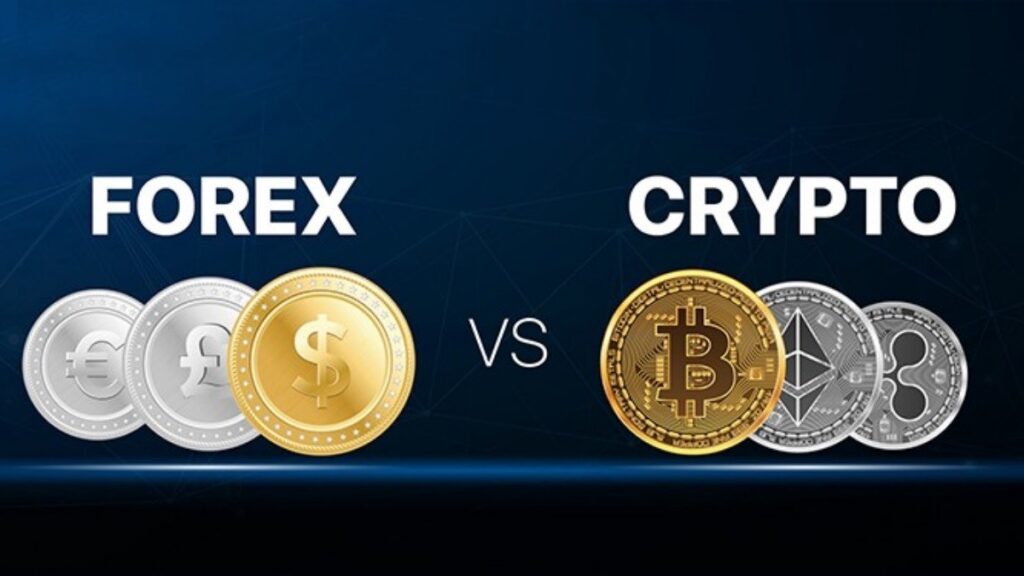Key Differences Between Forex and Cryptocurrency Markets
Financial markets have rapidly developed over the decades, with the advent of cryptocurrencies introducing a new type of financial market. Two significant markets attracting many traders are the Forex market and the cryptocurrency market. Both markets offer substantial profit opportunities but also present distinct differences. In this article from Toofan Trading Academy, we will examine the key differences between Forex trading and cryptocurrency trading.
Definition of Forex and Cryptocurrency Markets
Forex Market (Foreign Exchange): The Forex market is where various global currencies are traded against each other. It is the largest and most liquid financial market in the world, with a daily trading volume exceeding $6 trillion.
Cryptocurrency Market: The cryptocurrency market is where digital currencies like Bitcoin, Ethereum, and other blockchain-based currencies are traded. This market is relatively new, having experienced rapid growth over the past decade.
Read more: Forex comparison with other financial markets
Key Differences
1. Nature of Assets
One fundamental difference between the Forex and cryptocurrency markets is the nature of the assets traded. In the Forex market, the assets are national currencies issued by governments and central banks. These currencies have economic and legal backing, and their value is determined by economic and political factors.
In contrast, cryptocurrencies are digital assets created through cryptographic protocols and operate in a decentralized manner. These currencies are not controlled by any government and their value is primarily determined by market demand and supply.
2. Liquidity and Trading Volume
The Forex market, with a daily trading volume of over $6 trillion, is the largest financial market globally. It boasts high liquidity and quick price movements, allowing traders to enter and exit trades easily.

On the other hand, the cryptocurrency market is relatively smaller, with lower daily trading volumes compared to Forex. However, some cryptocurrencies like Bitcoin and Ethereum have high liquidity. Lower liquidity in the cryptocurrency market can lead to greater price volatility.
3. Trading Hours
The Forex market operates 24 hours a day, five days a week. Due to time zone differences between financial markets worldwide, Forex is continuously active, allowing traders to execute trades at any time.
The cryptocurrency market is also open 24 hours a day, seven days a week. This continuous operation is due to its independence from financial institutions and governments, enabling traders to trade at any time from any location.
4. Risks and Volatility
The Forex market experiences price volatility influenced by economic, political, and global events. This volatility is usually less than that of the cryptocurrency market, and the risks involved are relatively more predictable.
The cryptocurrency market, due to its decentralized nature and lack of legal backing, exhibits higher price volatility. Sudden and significant price changes are common, presenting both opportunities and risks for traders. This volatility can offer substantial profit potential but also carries higher risks.
5. Technology and Security
The Forex market operates through traditional trading platforms and brokers. These platforms are usually regulated by reputable financial authorities, ensuring the security of transactions.
The cryptocurrency market primarily operates through digital exchanges using blockchain technology. While the use of cryptography provides high security, there are risks such as exchange hacks and loss of private keys.
Read more: 5 golden tips for forex trading
Conclusion
Both the Forex and cryptocurrency markets offer significant opportunities for traders, but they have fundamental differences that traders should be aware of. While the Forex market offers high liquidity, lower volatility, and legal backing, the cryptocurrency market presents higher volatility, larger profit opportunities, and greater risks.
Choosing between these two markets depends on an individual’s risk tolerance, experience, and trading goals. Some traders may prefer the Forex market for its stability and liquidity, while others might seek larger opportunities in the cryptocurrency market.
Ultimately, both markets can be part of a trader’s investment portfolio, and with proper risk management, traders can benefit from the advantages of each.
